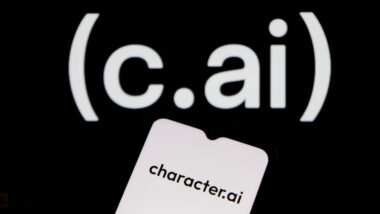Die Electronic Frontier Foundation beschäftigt sich auch mit der Google Book Search – aber anders als es der Heidelberger Appell & Co. tun. Im Grundsatz unterstützen sie das Projekt, weil es den öffentlichen Zugang zu Büchern massiv befördern wird. Aber es gibt Bedenken, ob die Privatsphäre der Lesenden auch geschützt und beachtet wird: Don’t Let Google Close the Book on Reader Privacy!
As Google expands its Google Book Search service, adding millions of titles, it will dramatically increase the public’s access to books. More and more people will soon be browsing, reading and purchasing books online. But Google may be leaving out the privacy we have come to expect, with systems that monitor the digital books you search, the pages you read, how long you spend on various pages, and even what you write down in the margins. To ensure that our privacy remains at least as strong online as it is in the physical world, Google needs to do more. With the ACLU of Northern California and the Samuelson Clinic at UC Berkeley, EFF has written a letter to Google CEO Eric Schmidt, demanding that Google take specific steps to protect your freedom to read privately. We’ve asked that Google only respond to legitimate warrants when the government comes calling, for example, and we’ve asked that they not share your private reading data with third parties without your permission, among other things.
Konkret gibt es diese Forderungen an Google:
* Protect your reading records from government and third party fishing expeditions by responding only to properly-issued warrants and court orders, and by letting you know if someone has demanded access to information Google has collected about you.
* Make sure that you can still browse and read anonymously by not forcing you to register or give personal information and by deleting any logging information for all services after a maximum of 30 days.
* Separate data related to Google Book Search from any other information the company collects about you, unless you give it express permission.
* Give you the ability to edit and delete any information collected about you, transfer books from one account to another without tracking, and hide your „bookshelves“ or other reading lists from others with access to your computer.
* Keep Google Book Search information private from third parties like credit card processors, book publishers, and advertisers.
Man kann bei der EFF eine Massen-Mail an Google unterzeichnen und abschicken. Mal schauen, wie die Reaktion von Google ist und ob die Google Book Search die Privatsphäre der Nutzer achten wird. Denn:
As Michael Chabon, author of The Yiddish Policemen’s Union: A Novel, put it: „If there is no privacy of thought — which includes implicitly the right to read what one wants, without the approval, consent or knowledge of others — then there is no privacy, period.“




„Do only evil“. Google geht mir langsam wirklich auf den Wecker. Mittlerweile wird dort ja offensichtlich jede noch so kleine Regung der Benutzer protokolliert und ausgewertet. Die Cookies auf der Website sind da im Vergleich ja noch harmlos.
Hoffen wir mal, dass es in nicht allzu ferner Zukunft wird wie hier:
http://www.imdb.com/title/tt0060390/
„Demokratie basiert fundamental auf einem Misstrauen der Bürger gegenüber dem Staat“
BULLSHIT!!!
Die Google-Reaktion ist da:
http://googlepublicpolicy.blogspot.com/2009/07/google-books-settlement-and-privacy.html
http://booksearch.blogspot.com/2009/07/google-books-settlement-and-privacy.html
@hans (3): Meinst du das Ernst? Oder nur die umgekehrte Version (Staat misstraut Bürgern)?
Der Satz stimmt nämlich schon, so wie er da steht. Der Bürger muss jederzeit kontrollieren dürfen und können, was der Staat gerade tut.
Eine amerikanische Werbefirma übernimmt – und zwar im Alleingang – die Bewahrung und Zugänglichmachung der westlichen Kultur, und nun sollen die sich auch noch von Nullkommazwei auf Hundert eine Ethik aus den Rippen schneiden?
Ich wünsche von Herzem jedem Google-Books-Benutzer, daß sein jeder Atemzug und Wimpernschlag aufgezeichnet wird – mehr noch, ich wäre dafür, die Protokolle gleich mit zu veröffentlichen: Jedes Werk auf Google Books, und die komplette Rezeptionsgeschichte obendrein! Und Euren Kindern und Cousinen dritten Grades mögen Kredite verweigert werden, weil Ihr mal ein Snippet von Profit over People angeklickt habt, oder so!
Das müssen doch arge Hinterwäldler sein, die den alten Zuhälter Google nur dann dulden wollen, wenn sie weiterhin rein als Voyeure am Betrieb teilhaben dürfen: Alles sehen, aber nicht gesehen werden! Die Autoren werden der Vergooglung zugeführt, das schert uns einen Dreck, nur wenn wir selbst am Rocksaum ein bißchen vergooglet werden sollen, dann äußern wir Bedenken!
Es soll doch keiner glauben, daß dieses Kulturopfer Google günstig stimmen kann. Das Beißen kann man selbst dem ersten garantiert nichtbösen Vampir dieser Erde wohl schwerlich verbieten; die Bücher, wie wir ihm so selbstlos anerbieten, sind aber nur sein Gebiß.
Das heißt, so tun als ob kann man natürlich. Die EFF heuchelt gedankenverloren vor sich hin, Google heuchelt ein bißchen was zurück. „Klar wollen wir alle Bücher der Welt umsonst, aber bitte versprecht uns, daß ihr nicht irgendwie doch noch Geld an der Sache verdient!“ „Kein Problem, wir wissen, daß euch das wichtig ist, wir denken da schon derbe drüber nach!“ Erleichtertes Seufzen im Publikum. Klang ja ziemlich echt diesmal, oder?
Kultur gehört allen. Wenn wir „alle“ sagen, meinen wir Google. Wenn wir „Kultur“ sagen, meinen wir Dich.